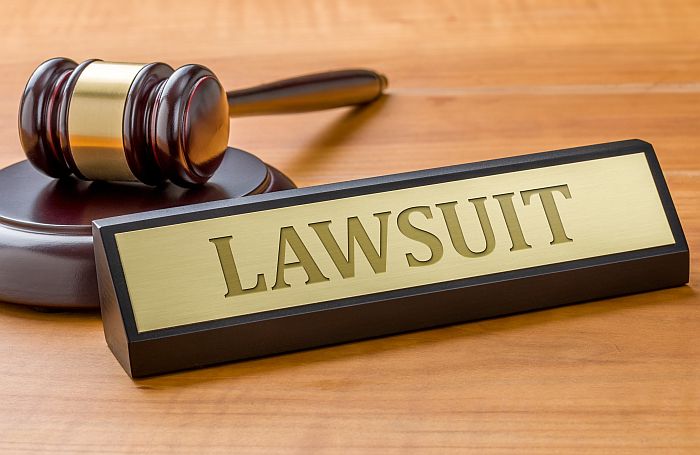Domain names are a considerable business asset in today’s digital world. Therefore, disputes can be costly, requiring expert legal advice and representation.
If you are in any doubt as to the value of popular domain names, consider the following:
- In 2010, fb.com was acquired by Facebook for $US8.5 million from the American Farm Bureau Federation. com now redirects to facebook.com.
com president, David Roche was, by his own admission, considered “crazy” when he paid $US11 million for the domain name hotels.com. His success story is now often used to illustrate how acquiring an Exact Match Domain Name can create a standalone brand. - Atlanta-based Nations Luxury Transportation, LLC paid a whopping $US30.1 million dollars to Don’t Look Media Group for PrivateJet.com in 2012.
- com was purchased for $US35.6 million in 2010, making it the highest price ever paid for a domain name.
A domain name is the address internet browsers use to access your website. It is used for finding and identifying computers on the internet. Although computers are traditionally identified by their IP address, it is difficult for people to remember a string of numbers; therefore, domain names were created.
Your website’s domain name must be registered before you can use it. Every domain name is unique. No two websites can have the same domain name.
What is the difference between the rights acquired with a domain name and a trademark?
When you acquire a domain name, you enter into a legal contract with the provider that allows you exclusive rights to that website address.
No one else can register a domain name you have brought. However, unless you have registered it as a trademark, your domain name could be used in connection with goods and services in another context[1].
Without a trademark, you may still prevent another party from using your name and the goodwill associated with it under the common law right of ‘passing off.’ However, it is often more difficult to prove or enforce passing off rights as compared to those obtained under a trademark[2].
Because of the tangible and non-tangible value a domain name can provide to a business, it is not surprising they can become subject to dispute.
What is a Cybersquatter?
Wrongdoers in regard to domain names are known as ‘cyber squatters’ – people or organisations who register domain names in bad faith.
Cybersquatters tactics often involve registering a domain using common words, an existing company name, celebrity connection or similar existing domain name. They then use the newly created domain name to redirect business to their own website or sell it for an exorbitant price.
Cybersquatters can cost businesses thousands of pounds in lost revenue and goodwill. If you try and transfer the domain name back to your organisation, you may be charged a steep price for the privilege.
How do I deal with a domain name dispute?
It is possible to bring an action against a cybersquatter under the laws of trademark or passing off. However, if the cybersquatter is not acting in the course of trade, (for example, they are simply holding an inactive site for the purposes of obtaining payment), then trademark and passing off rules will not apply.
If you are unable to bring an action for trademark infringement or passing off, you can take action under the Internet Corporation for Assigned Names and Numbers (“ICANN”) Uniform Domain Name Dispute Resolution Policy (the “ICANN Policy”) or the Nominet Dispute Resolution Service. These systems were designed to provide quicker, more cost-effective options for resolving domain name disputes compared to formal litigation.
The ICANN Policy applies in relation to the “.com,” “.net” and “.org” top-level domains. It does not apply to the country domain level “.co.uk,” which is administered by Nominet UK.
To succeed in a Nominet Dispute Resolution Service claim, you must show:
- The disputed domain name is identical or highly similar to your registered or unregistered trademark;
- the alleged cybersquatter had no rights or legitimate interests in the name; and
- they are using the name in bad faith.
Bad faith can be illustrated by:
- seeking payment for the registered or unregistered trademark from the legitimate owner
- disrupting a competitor business
- refusing to return the trademark to the owner
- intentionally confusing consumers
The burden of proof is set low; a registered trademark is enough to establish a legitimate right on behalf of the complainant.
If you are successful under either process, the disputed domain name will be cancelled or transferred back to you.
Obtaining damages in a domain name dispute
The trade-off for being swift and low-cost is that the “ICANN Policy or the Nominet Dispute Resolution Service cannot award damages to a successful claimant. If you have lost significant trade and goodwill, or your business reputation has suffered harm at the hands of a cybersquatter, obtaining damages may be essential.
If this is the case, it is crucial to engage an experienced civil disputes solicitor to advise and represent you. Most cases are settled prior to court proceedings meaning often the cost is less than you may anticipate.
Domain name disputes can seriously impact your business. If you believe a cybersquatter has infringed your rights, contact an experienced IT solicitor for help.
Saracens Solicitors is a multi-service law firm based in London’s West End. We have dedicated and highly experienced civil law solicitors who can advise you on domain name disputes. For more information, please call our office on 020 3588 3500.
Do you have any comments to make on this article? Please feel free to add them in the section below.
[1] https://saracenssolicitors.co.uk/commercial/trademarking-names-words-phrases
[2] https://saracenssolicitors.co.uk/commercial-clients/commercial-law/intellectual-property/trademarks-and-passing-off
Table of content
Recent Posts
Tokenization: UK Law On Tokenizing Real-World Assets
The world of finance is being reshaped by tokenization, where [...]
Lidl v Tesco: A Clubcard Catastrophe
In an unexpected turn of events, discount supermarket giant [...]
EU vs Big Tech (Apple / Meta / Google): A Breakdown On The Crackdown
The European Union (EU) has launched investigations into three [...]






